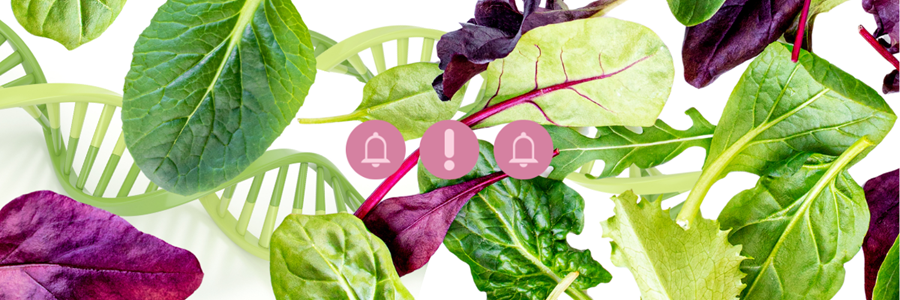
After a brief hiatus, genetically modified mustard greens will soon make a return to the grocery store. In May 2023, we alerted you to the development and launch of Conscious Greens’s genetically modified mustard greens. The brand, nested under the Conscious Foods label, was established by the biotechnology company Pairwise Plants (Pairwise), which had developed the genetically modified mustard greens using the company’s proprietary Fulcrum CRISPR platform to be less bitter. The goal was to market the mustard greens as a healthier alternative to lettuce salad greens.
However, shortly after launching the product in a limited number of US locations, Pairwise decided that it did not have the expertise necessary to significantly expand the market. So it embarked on a search for a partner that would have the experience and ability to establish and grow the product in the marketplace. It found that partner in Bayer.
In May of this year, Pairwise announced that it had entered into an exclusive licensing agreement with Bayer. The agreement calls for the latter to develop and commercialize 10 genetically modified mustard green products. It is anticipated that the products will re-enter the retail marketplace either in late 2024 or early 2025. Bayer has hinted that the initial US rollout will be followed by expansion into other markets.
No definitive information has been released on the composition or branding of these 10 products, but it is possible that Bayer will market the genetically modified mustard greens under one or more new brands rather than the original Conscious Greens brand established by Pairwise. The extent of the grower network and the locations of the growers are also unknown. At the moment, genetically modified mustard greens are not listed by the USDA Agricultural Marketing Service (AMS) on the National Bioengineered Food Disclosure Standard (NBFDS) list.
It is important to note that this partnership isn’t Bayer’s first (or last) collaboration with Pairwise. An initial 5-year Pairwise-Bayer partnership focused on research and development related to corn, soy, wheat, cotton and canola. This working relationship resulted in 27 novel traits being entered into testing programs by Bayer.
Then, in 2023, the two companies announced a second 5-year multi-million-dollar collaboration to develop a short corn plant. Bayer had been working on creating a short-stature corn using traditional GMO technology prior to its partnership with Pairwise. However, Bayer shifted to using new GMO techniques in anticipation of potential EU regulatory changes that might exempt the crop from regulation and make it more acceptable for planting across Europe.
In September, Pairwise announced that it had recently closed a $40 million Series C funding round. One of the key investors was Leaps by Bayer, the strategic investment arm of Bayer.
However, mild mustard greens and short corn aren’t the only new genetically modified crops that are garnering Bayer’s attention. In May, Bayer announced that as part of its open innovation platform, the company would be seeking opportunities to make advances in genetically modified fruits and vegetables by incorporating enhanced nutritional value.
As part of this effort, Bayer entered into a collaboration with G+FLAS, a South Korean biotechnology company, to develop a genetically modified tomato that is enhanced with Vitamin D3. Work on a genetically modified Vitamin D3 tomato was originally undertaken by researchers at Seoul National University. One of those researchers, Sunghwa Choe, is the CEO of G+FLAS.
Pairwise is also actively expanding its goals and spreading its influence. Recently, the company has publicized work to create a genetically modified seedless blackberry, which it is developing in partnership with Plant Sciences. Pairwise has also licensed its technology to other developers. Tropic Biosciences is using its technology to develop genetically modified bananas and coffee. Solis Agrosciences, an agricultural research consultant, is using Pairwise’s Fulcrum platform tools in the development of new bioagricultural products.
Last month, it was also announced that Pairwise is entering into a joint venture with Corteva (another Pairwise investor) aimed at accelerating the development and deployment of genetic modifications to improve crop resilience and sustainability.
The Non-GMO Project’s Standard defines all crops and products developed using biotechnology, including new gene-editing techniques, as GMOs. We share this information to further one of the Project’s primary goals of creating greater transparency in the supply chain, ensuring you have the information you need to make the best choices for you, your brand, and your family.
Please note that the information herein is for general informational purposes only and is based on the linked sources above.
The Non-GMO Project is a 510c3 nonprofit dedicated to protecting and promoting non-GMO alternatives. New GMO Alerts is supported by funding from readers like you. Donate today.
